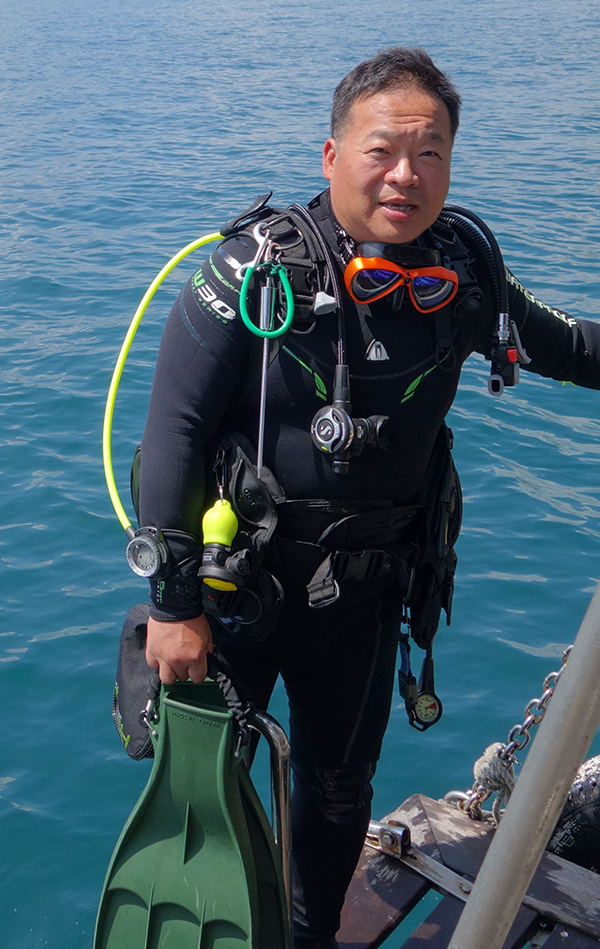
Innovation for marine protection
By : Michael Gibb
No one wants chemicals destabilising underwater ecosystems and threatening sustainable aquacultures. We want our oceans to be clean and safe, not toxic to marine life. That’s why the new CityU connection with UNESCO is so exciting.
CityU’s State Key Laboratory of Marine Pollution (SKLMP) announced in April that it would establish the first UNESCO regional training and research centre on coastal contaminant monitoring and innovative marine technologies in Hong Kong for the Western Pacific region.
Committing to marine protection
 Professor Kenneth Leung Mei-yee The UNESCO-IOC Regional Training and Research Centre on Coastal Contaminant Monitoring and Marine Innovative Technologies, or Coastal COMMIT, will facilitate knowledge exchange in key research areas for capacity building in this region.
Professor Kenneth Leung Mei-yee The UNESCO-IOC Regional Training and Research Centre on Coastal Contaminant Monitoring and Marine Innovative Technologies, or Coastal COMMIT, will facilitate knowledge exchange in key research areas for capacity building in this region.
“The new centre aligns well with SKLMP’s mission to protect marine environments through high-quality multidisciplinary research and innovations,” says Professor Kenneth Leung Mei-yee, SKLMP Director.
“We can build capacity by nurturing and training environmental scientists, managers, and entrepreneurs in the region, and support governments in managing environmental quality and protecting marine ecosystems,” he explains.
Coastal COMMIT will connect CityU with 22 countries and regions on several collaborative research areas in innovative technologies for pollution monitoring and control; eco-safety and environmental risk assessment of contaminants of concern to provide scientifically based water quality criteria and seafood safety limits; and ecological responses to pollution and ecosystem restoration.
“The centre will also promote Hong Kong's integration into national development and support Hong Kong’s goal of becoming an international innovation and technology hub,” says Professor Leung.
Training for underwater research
 Dr Leo Chan Lai SKLMP’s new centre will offer relevant training to researchers, government officers and visiting scientists through the SKLMP Fellowship, Professor Leung says. Online training workshops on selected topics will enrich the knowledge of anyone involved with environmental authorities, marine conservation or fishery management.
Dr Leo Chan Lai SKLMP’s new centre will offer relevant training to researchers, government officers and visiting scientists through the SKLMP Fellowship, Professor Leung says. Online training workshops on selected topics will enrich the knowledge of anyone involved with environmental authorities, marine conservation or fishery management.
Among the centre’s strategic foci will be chemical contaminants of emerging concern, plus processes such as eutrophication (See Box 3). Specifically, Dr Leo Chan Lai, SKLMP Associate Director, will train researchers in scientific diving, sampling benthic dinoflagellate algae and monitoring coral health in Indonesia this summer.
Moreover, CityU students in marine pollution will benefit enormously from increased international exposure and opportunities to attend training workshops overseas and conduct international research projects in the region.
“This new UNESCO centre will further enhance CityU’s already excellent reputation in protecting underwater ecosystems and sustainable aquacultures,” says Professor Leung.

Professor Leung (3rd from left) and partners on a global programme for promoting cleaner estuaries point to Hong Kong on a map.

For more information, please visit: https://www.cityu.edu.hk/sklmp/




